Profile
Passion, self-improvement have driven me this far …A J Akuoko Sarpong shares her story
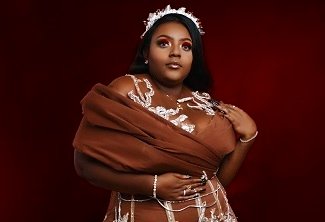
Even though her dream to become a lawyer like her father, Omanhene of Agogo Traditional Area, Nana Kwame Akuoko Sarpong, did not materialise, she has been able to carve a niche for herself in the world of broadcasting.
To her – the journey though encountered some ups and downs, had been a fulfilling one, considering the impact made so far.
Hostess of Brunch in the Citi and The Chat on Citi TV, Adjoa Akuoko Sarpong, affectionately called AJ Sarpong, has attributed her over-a-decade impact on the media landscape to passion laced with self-improvement.

In an interview with The Spectator, AJ Sarpong, who is currently pursuing her Second Masters degree in Brands and Communications Managementat the University of Professional Studies, Accra (UPSA), wants to leave an indelible mark in the next phase of her career.
Indeed, she wants to take charge of bigger opportunities as the best Master of Ceremony (MC) at life-size shows in Africa and the world.
Background
AJ, who hails from Asante Akyem Agogo in the Ashanti Region, was born in Accra, to Nana Kwame Akuoko Sarpong and Madam Alice Afful Asmah, a former shipper.
She has 15 other siblings, comprising nine sisters and four brothers
“On my mother’s side, we are two and 14 on my father’s side. In all, I am the last born,” she said.
Education and Media journey
Not even the yearly travels to London at age five, as a result of her mother’s work schedule, could have effect on her education.
She started her education at Sacs Kingdergarten, from there to Alsyd Academy, later to Englebert School – all in Accra.
AJ moved to Akosombo International in the Eastern Region and later to Galaxy International School, where she changed from the Ghanaian system of education to the Cambridge System of the United Kingdom.
The hostess of The Chat had an option of going back to Galaxy International School for her ‘A’ level or home tuition, “but I chose to be taught by some of my teachers, and used six months to write my exams, which I would have used two years for.”
At a random glance through the newspapers, she saw an advertisement for Personal Assistant to Confidence Haugen, owner of Aphrodisiac Nite Club.
“I applied, and interestingly increased my age to 18, to qualify because I was then 16 years.”
Luckily, she got the job and worked with Confidence Haugen for a year and moved to Ghana Music.com.
“I then furthered my education at the University of Ghana, Theatre Arts and Political Science as a Ghanaian with foreign background in 2010, while I was still working with Ghana Music and YFM in Accra,” she said.
According to AJ, her love to be in the media grew stronger, when she was in Level 200 and started freelancing for media houses in her final year, featuring on Entertainment Shows on Radio Gold, GTV, TV3 and GHOne – reviewing Big Brother Reality Show.
GHOne
“At GHOne as an entertainment pundit, a new show dubbed Tales, hosted by Naa Ashorkor was introduced and I she was made to join the panel on Wednesdays to discuss life and family issues.”
Interestingly, when she graduated from University of Ghana, AJ spoke to the management of GHOne, and had the opportunity to do her National Service there as the producer for Tales, got confirmed afterwards and worked at the media house for five years.
“It got to a point I had done everything at GHOne, sat in as hostess of every entertainment show with the exception of Pundit. When EIB came in, I worked with Starr and Live FM. So after doing same thing for many years, I decided to challenge myself. I decided to quit, and move on. I must say it was a mutual conversation,” she revealed.
Citi FM/TV
“After my Masters in journalism at the Ghana Institute of Journalism, I travelled a bit. While away, there was a conversation and upon my return, the female member of the Citi Breakfast Show had gone for a long school break, so there was a vacancy for me to fill.”
She said, at the time, Richard Dela Sky, Kojo Akoto Boateng and Bernard Avle were on the show, “and I must say, I was scared, I was just 25 years old then and had to pray about it for about a month to know if it was the right step.”
According to her, “the worse thing in life is to move too quickly and crash.” After prayer and conversations with the team, she realised it would be a good move. While on the Citi FM Breakfast Show, she had the opportunity to work with Cti TV as well.
“At a point, the host of Brunch In the Citi went on leave, I was made to sit in for a month; I took some two weeks to learn how to play my own songs, and took up the task,” she said.
Even though the tempo was background music, AJ Sarpong tweaked it, and after a month, the ratings had changed and she was asked to host the show permanently, “I took the opportunity and ran with it.”
Advice
“Self-improvement has always been my preoccupation. I love to read, and I am passionate about it. Indeed, there is a lot of hard work behind the glamour.”
For this reason, AJ has advised young people aiming to climb higher in various endeavours to have these principles at the back of their minds and run with them.
Fellowship, leisure and favourite food
AJ Sarpong fellowships with Winners Chapel International, Dzorwulu branch.
She loves sleeping at her leisure, or watching movies on bed.
Her favourite food is Jollof. “I cook the best jollof and I can represent Ghana in any Jollof competition.”
Profile
Albert Litela Obidiaba: The artist who wove Ghana’s soul into the King’s Baton
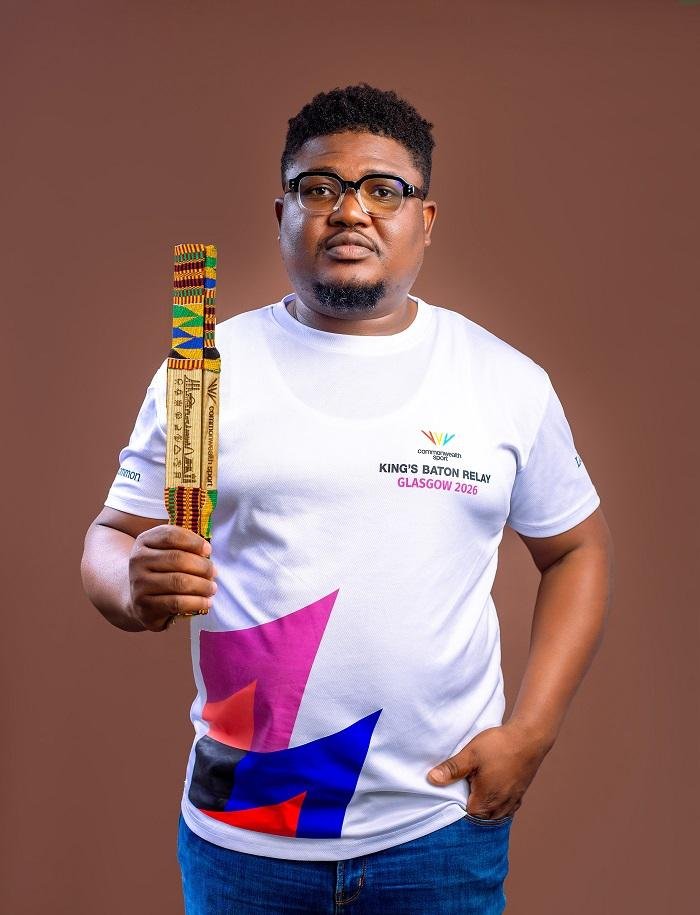
When the world’s eyes turn to the King’s Baton on its global journey, one of Ghana’s most profound artistic stories travels with it. It will be a story of creativity, culture, and national pride crafted by Albert Litela Obidiaba.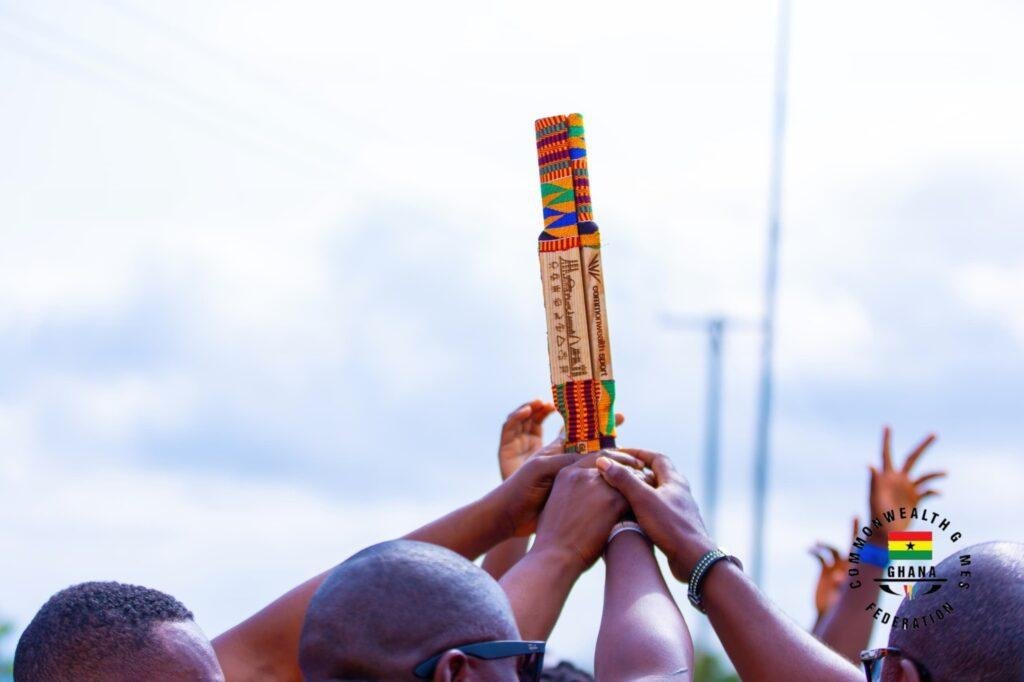
From the quiet town of Old Baika in the Oti Region, Albert’s journey as an artist has always been about telling stories. It is not just through words, but through symbols, textures, and meaning.
“From a young age, I was drawn to the power of art, knowing how colours and textures can capture not just emotion but culture and identity,” he recalls.
Today, his name has become synonymous with innovation rooted in traditional bridge between Ghana’s past and its global creative future.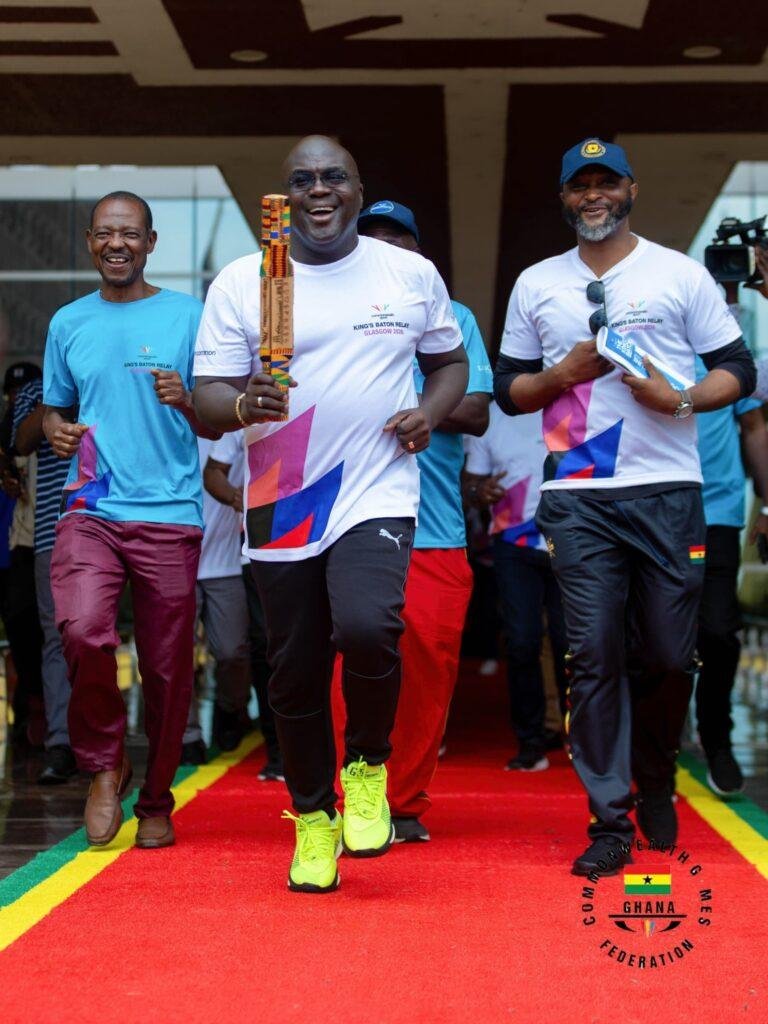
Albert’s love for art was born from curiosity. Surrounded by the vibrancy of Ghanaian culture; the patterns of kente, the stories behind Adinkra symbols, and the textures of daily life, he began sketching and crafting early on.
“Simple things told deep stories,” he says. “That fascinated me.”
As he matured, his art evolved into a personal mission to preserve and reinterpret Ghana’s heritage for a modern audience. His style reflects a seamless blend of culture and contemporary design, each piece a narrative of unity, history, and pride.
“I see art as storytelling through form and symbolism, it should feel rooted in purpose yet speak to today’s world,” he explains.
When the call came to design Ghana’s version of the King’s Baton, Albert saw it as both a national duty and a creative calling.
Recommended by mentors like Mr Charles Osei Asibey, who trusted his talent and understanding of Ghanaian symbolism, he embraced the project wholeheartedly.
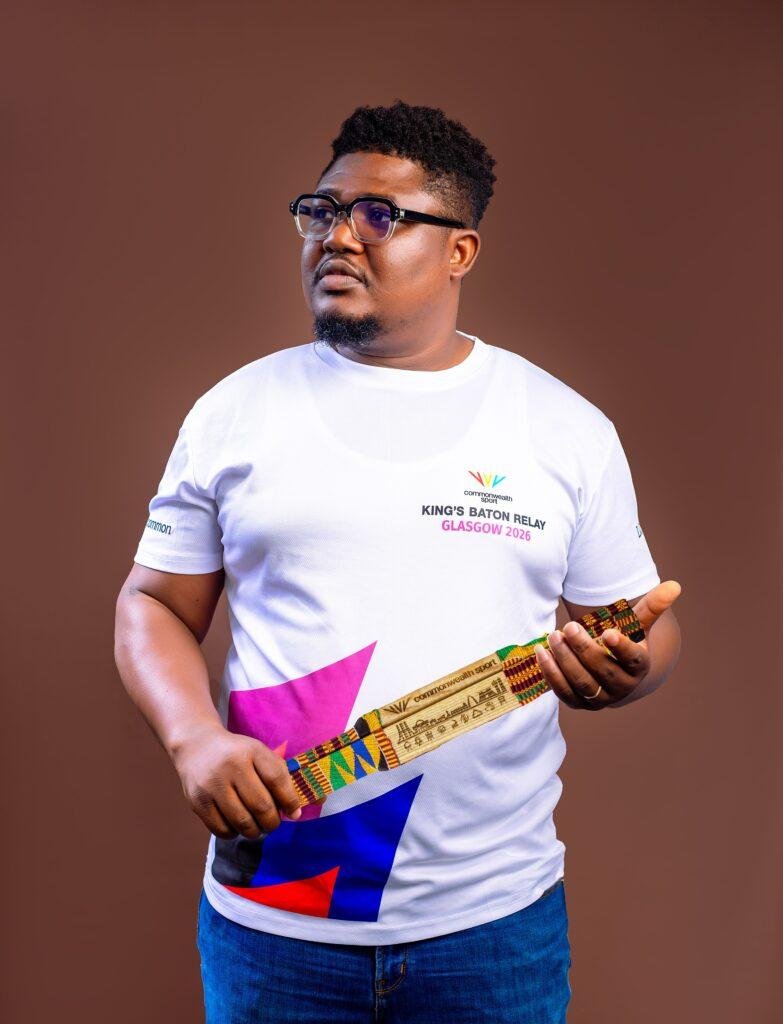
His vision was clear; to create a piece that would embody unity, pride, and the enduring spirit of Ghana.
Drawing from traditional motifs, he integrated textures inspired by kente weaving, representing hard work, continuity, and creativity. The golden tones symbolise strength and dignity, while the contours and natural motifs mirror Ghana’s landscapes and people.
“The King’s Baton had to tell our story of who we are, what we value, and how we see the world, it is more than art, it is identity in motion,” he said.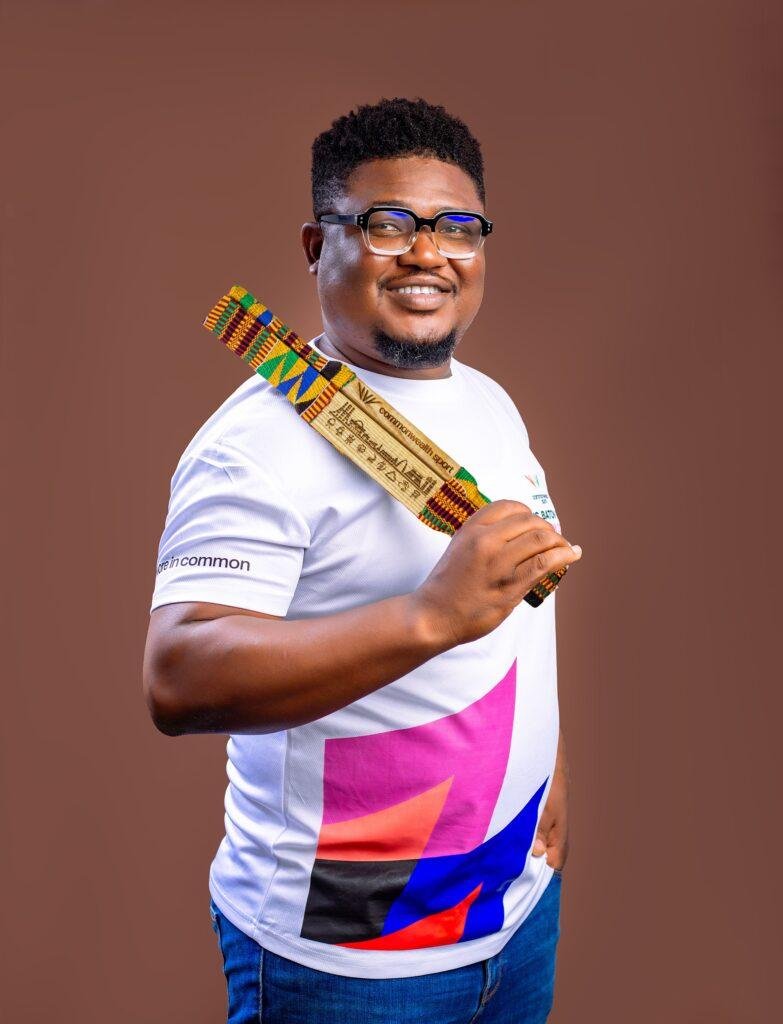
Every etch, every pattern carries meaning. From concept to completion, the entire process took three intense weeks which were filled with research, design sketches, consultation, and collaboration with skilled artisans.
“It was days and nights of work, but a lifetime of meaning,” he says with quiet pride.
Creating a design that represents all of Ghana’s diverse cultures was no small feat. Albert had to balance aesthetics, authenticity, and technology thereby using sustainable wood, carefully treated and certified, to reflect the nation’s commitment to nature and preservation.
“It wasn’t easy finding the right mix,” he admits. “But those challenges pushed me to think deeper. They made the final piece stronger — both artistically and symbolically.”
For Albert, Ghanaian culture is both muse and message. His works echo the values of unity, strength, persistence, and wisdom, drawn from Ghana’s traditions.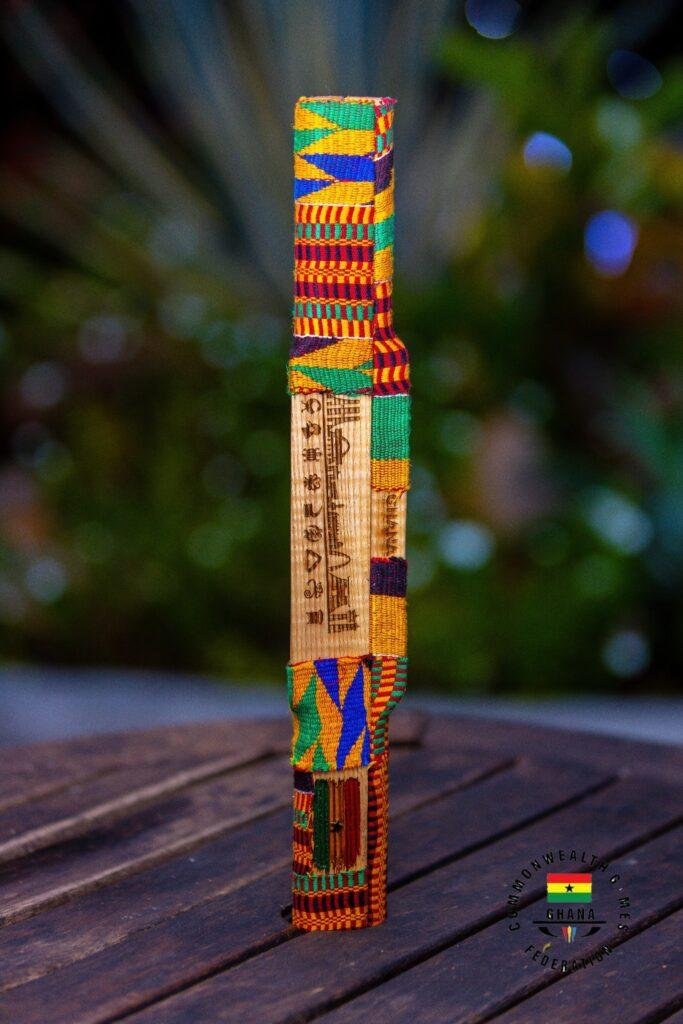
“Art preserves who we are and every line and symbol tells a story of belonging,” he said, and believes art is one of the most powerful tools for building national pride.
Designing the King’s Baton has been a defining moment in his creative journey and that it deepened his appreciation for cultural storytelling. “It taught me that creativity is also a form of service,” he said.
The experience has opened new professional doors, but more importantly, it gave him a renewed sense of purpose making him embrace a call to national duty.
“My soul will be glad even after my days on earth are over,” he said beaming with smiles.
Beyond the King’s Baton, Albert has worked on numerous projects celebrating Ghanaian identity through contemporary art and design. His ongoing works explore symbolism and heritage in new forms which includes blending materials, stories, and styles from across Ghana’s regions.
He is currently preparing projects that continue the conversation the baton began. They are about unity, creativity, and Africa’s evolving artistic voice.
To young artists aspiring to make their mark, Albert’s advice is for them to believe deeply in their craft and that the world is always looking for authenticity “which comes from knowing who you are and where you come from.”
On how he wants to be remembered, he said, “I want to be remembered as an artist who used creativity to celebrate culture and connect people. If my name is remembered as the one who designed Ghana’s version of the King’s Baton, that will be enough, because it means I carried Ghana in my hands, and shared her with the world.”
By Esinam Jemima Kuatsinu
Join our WhatsApp Channel now!
https://whatsapp.com/channel/0029VbBElzjInlqHhl1aTU27
Profile
Survival to service: Margaret Odame Donkor the breast cancer preacher
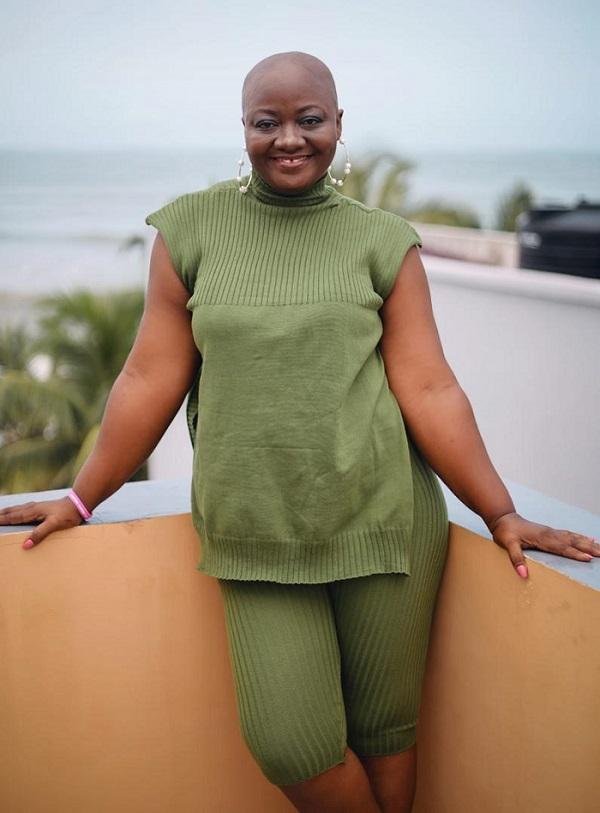
A ‘trotro’ bus heading to Nsawam was filled with the usual sounds from conversations, music, and sometimes a preacher delivering a message.
But when Margaret Odame Donkor rises to speak, she does not preach salvation or sell herbal remedies. Instead, she shares her journey as a breast cancer survivor, urging passengers to examine their breasts regularly, seek medical help early, and never lose hope.
Her pulpit is not a church, but the crowded minibuses of Ghana’s public transport system. Her message is not about repentance, but about survival.
She urges women to check their breasts regularly, encourages men to support their wives during health challenges, and reassures everyone listening that a cancer diagnosis is not the end of life.
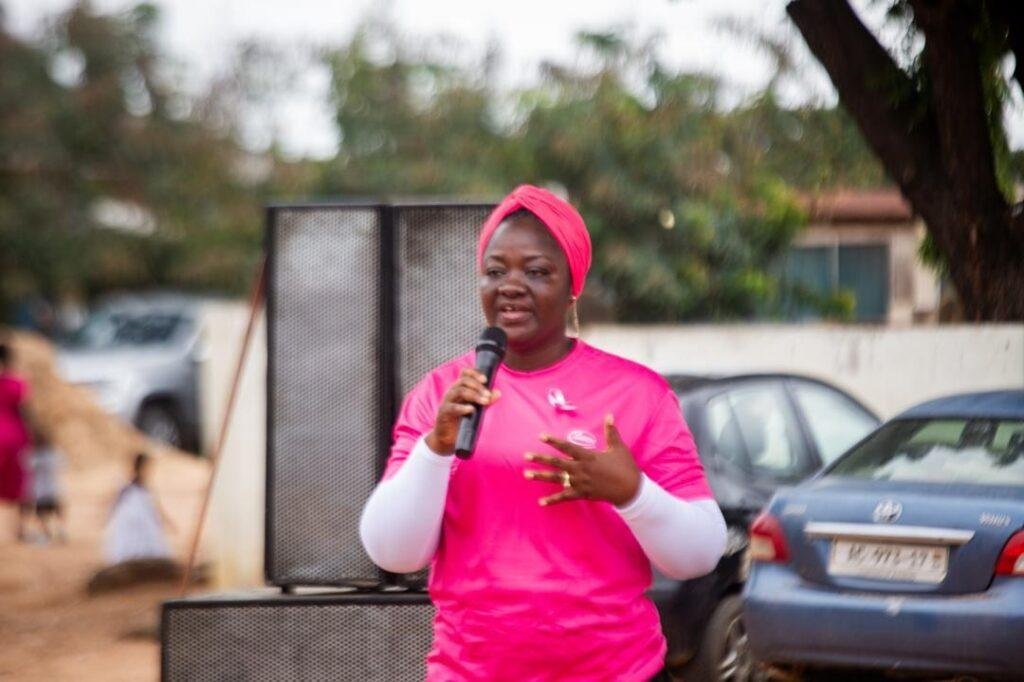
For Margaret, creating awareness is more than a duty-it is a calling born out of personal pain, fear, and triumph.
Her words carried weight because they come from lived experience.
At age 48, Margaret has walked through the valley of fear and pain, battled stage three invasive carcinoma, and emerged not just a survivor but an advocate determined to educate others.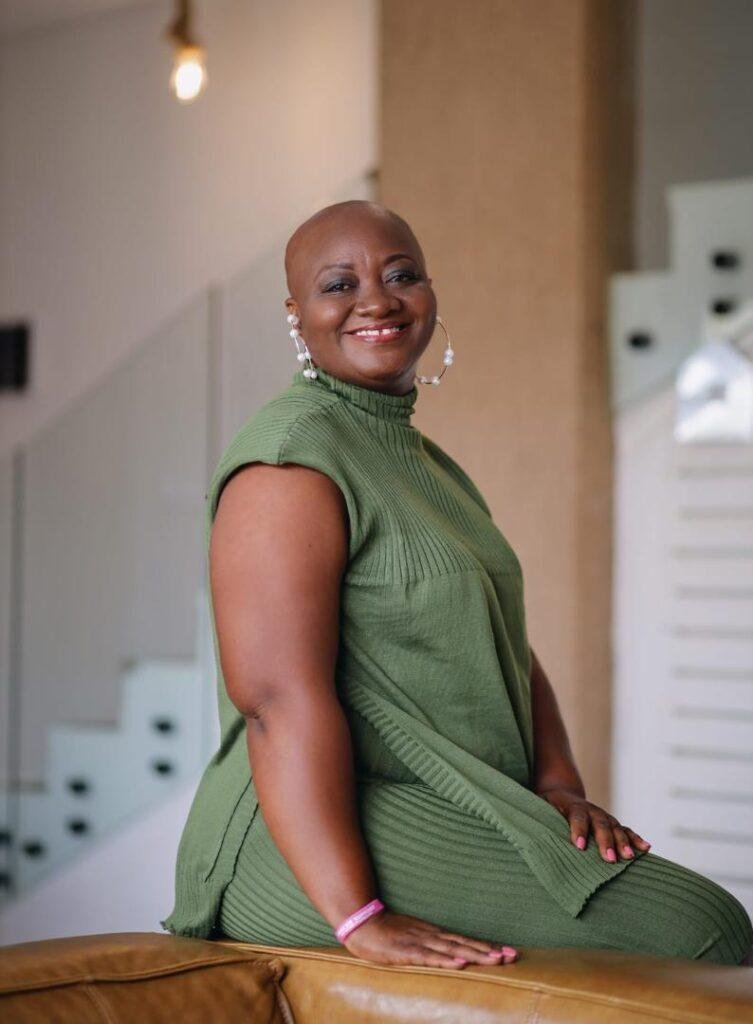
Cancer journey
Margaret’s encounter with breast cancer stretches back decades. At 22, she discovered a lump in her left breast. It was removed and declared benign. Relieved, she skipped regular checks and moved on. Then in 2021, the lump reappeared—this time spreading toward her armpit.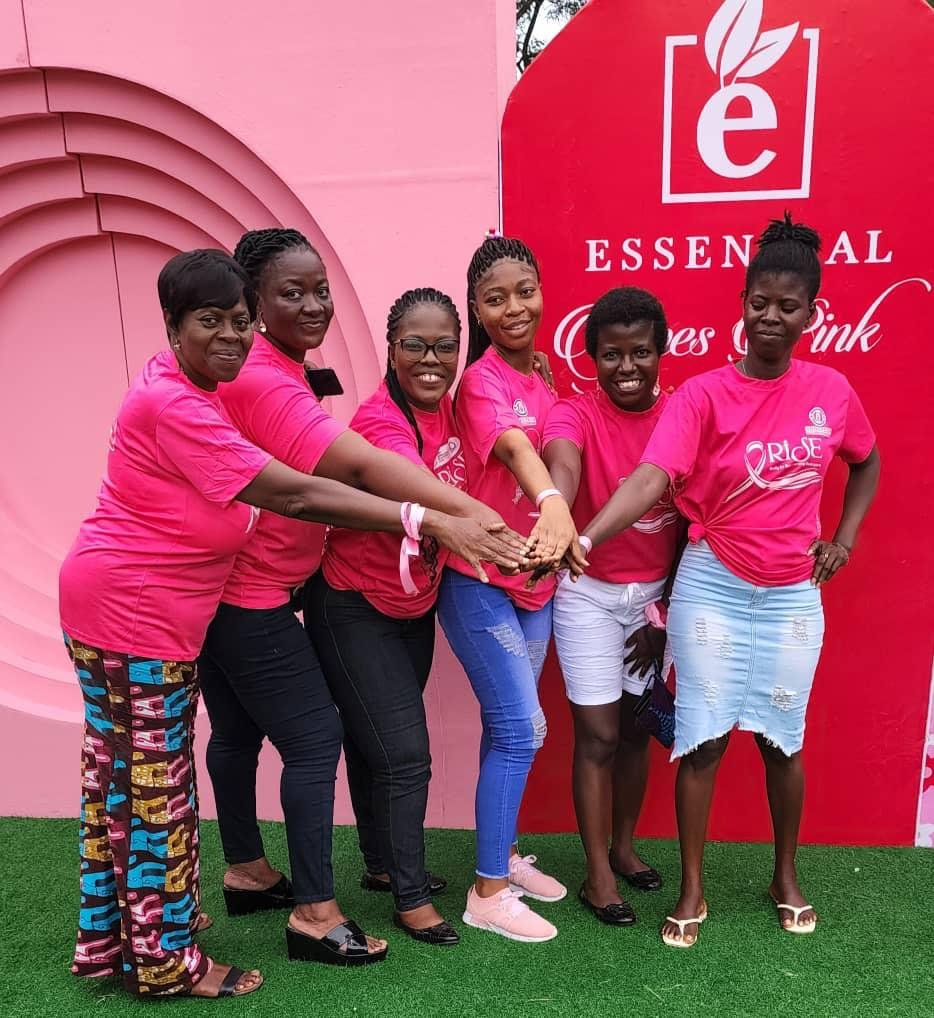
At a church screening in October 2022, doctors detected suspicious lymph nodes. Further tests confirmed her worst fear: stage three invasive carcinoma.
“It wasn’t easy,” she recalls softly. “But my faith in God kept me strong. My husband, children, family, friends, and colleagues formed an army behind me. Their prayers, visits, and encouragement gave me the courage to fight.”
“Be grateful every day because you never know what tomorrow may bring. No one has it all, but with love and support, you can endure,” she stated.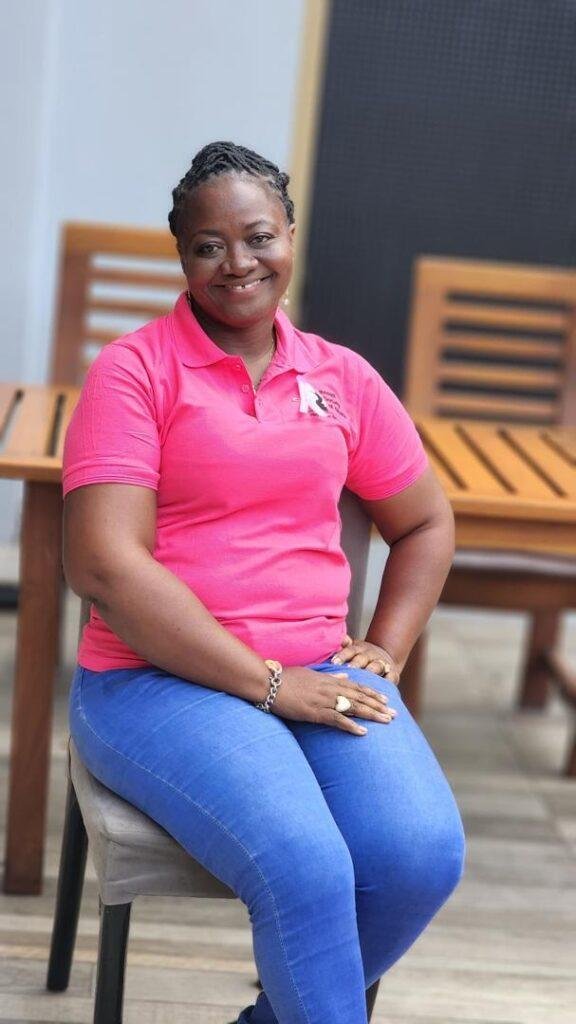
Her greatest fear remains recurrence and not living long enough to see her children graduate and become the people she dreams for them to be.
Before cancer disrupted her life, Margaret had found purpose in interpretation. In 2020, a friend spotted a Judicial Service vacancy and encouraged her to apply. After years of unsuccessful attempts at government jobs, she was reluctant, but she tried once more. This time, she succeeded and was posted to the Eastern Region, her home.
Today, she works at the Nsawam District Court, one of the busiest in the area. On a typical day, she arrives at 7:30am, prepares dockets, and confers with magistrates. She interprets proceedings in Twi, Ga, Hausa, and occasionally Ewe, ensuring that justice was accessible to all.
Her role is demanding. Cross-examinations require her to switch quickly between English and local dialects, while marriages often call for interpreting vows in couples’ preferred languages. Still, she thrives. “The registrars and magistrates I’ve worked with have been amazing. They make the environment very comfortable,” she stated.
Beyond the courtroom, Margaret is also an entrepreneur. In 2017, she founded Nubreed Décor, an events decoration business born from her childhood love for beautifying spaces. She recalls cutting paper decorations as a child and helping her cousin rent out chairs and decorate venues.
Balancing décor with court work was tough, and her health struggles after surgery made it even harder. Radiation left her with persistent rib pain, forcing her to slow down. “Now I hire more hands, which makes business expensive, but it helps me achieve my goals,” she explained.
Her biggest challenge as an entrepreneur remains finance. “The event industry is huge, but I have to work at my own pace and focus on my niche,” she admited.
Cancer changed how Margaret values people and relationships. She learned that those you least expect often become your strongest supporters. She urges families to stand by patients with prayers, encouragement, and financial support, reminding society that a cancer diagnosis is not the end of life.
Her advocacy extends beyond awareness talks. She dreams of establishing a counselling centre for young people and hopes Ghana will expand access to mammograms and radiotherapy centres. “Every patient deserves a chance at survival,” she said firmly.
She urged the youth to live peacefully and be their brother’s keeper, learn to be content and rely on God.
To women, she asserted that, “love yourselves and make breast checks routine while calling on Ghanaians to be open-minded, avoid being judgmental, and show love.
By Esinam Jemima Kuatsinu

 Profile6 days ago
Profile6 days agoAlbert Litela Obidiaba: The artist who wove Ghana’s soul into the King’s Baton

 News6 days ago
News6 days agoDaddy Lumba’s wife, children run to court to injunct December 6 funeral arrangements

 News1 week ago
News1 week agoPresident Mahama to meet Auditor-General, Chief Justice and Attorney-General over misuse of public funds






